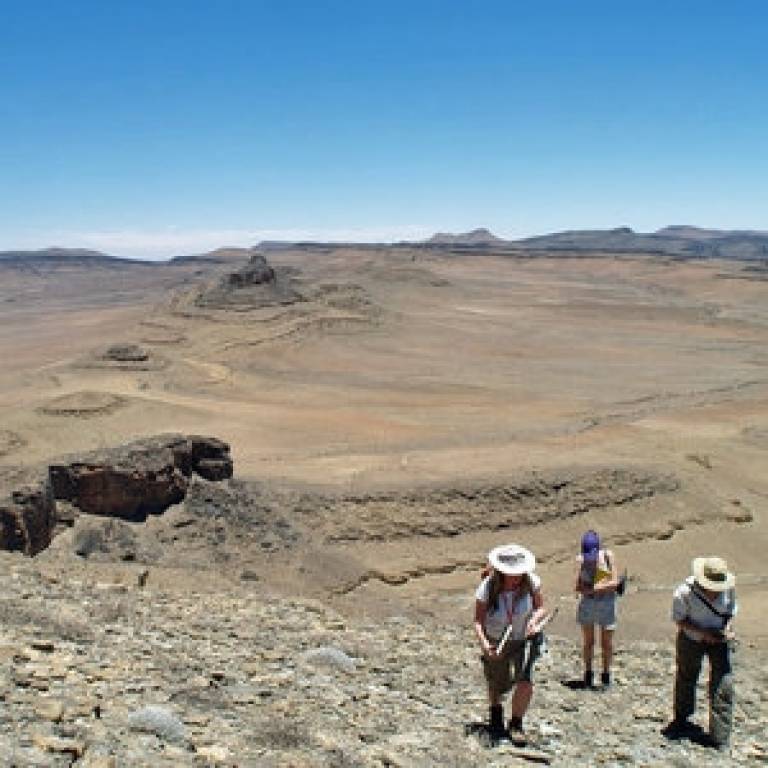Reef built by animals 550 million years ago discovered
27 June 2014
Newly found fossils show animals built living reefs twenty million years earlier than previously thought.

The animals - called Cloudina - were the first in the world to have a hard shell and are believed to have built the reefs to protect themselves from predators, or to get a competitive advantage in acquiring food or living space.
The study, published in Science, sheds light on how one of Earth's oldest reefs, now located on dry land in Namibia, was formed by the tiny, filter-feeding creatures during the Ediacaran period.
UCL PhD researcher Rosalie Tostevin (Institute for Earth and Planetary Sciences), co-author of the study led by the University of Edinburgh, said: "We discovered our fossils while camping wild on a farm called Driedoornvlagte - a location visited by many geologists and palaeontologists for the Nama Group of rocks which contain the first skeletal animals in the rock record.
"We ended up taking a different route to the field guide and exploring some parts of the rock formation that are rarely visited. In doing so, we spotted some unusual looking groups of fossils and as we explored further, we started to see more and more examples, which was extremely exciting as we knew we'd found something special."
We ended up taking a different route to the field guide and exploring some parts of the rock formation that are rarely visited. In doing so, we spotted some unusual looking groups of fossils and as we explored further, we started to see more and more examples, which was extremely exciting as we knew we'd found something special.
Rosalie Tostevin
The study reveals that the animals were the first to attach themselves to fixed surfaces - and to each other - by producing natural cement composed of calcium carbonate, to form rigid structures.
Previous to Cloudina, fossil evidence suggests animals had soft bodies and the new study supports previous research which indicated environmental pressure caused the species to develop new features and behaviours in order to survive.
Professor Rachel Wood, Professor of Carbonate GeoScience at the University of Edinburgh, who led the study, said: "Modern reefs are major centres of biodiversity with sophisticated ecosystems. Animals like corals build reefs to defend against predators and competitors. We have found that animals were building reefs even before the evolution of complex animal life, suggesting that there must have been selective pressures in the Precambrian that we have yet to understand."
Tostevin added: "This work hints at complex animal ecologies in the Nama Group which we are currently investigating further. We would all very much like to return to Namibia in the near future to hunt for more fossils. The country is so vast and unexplored - I imagine there are all sorts of exciting discoveries waiting for us."
Links
Image
- Researchers fossil hunting in Namibia (credit: Fred Bowyer)
Media contact
Bex Caygill
Email: r.caygill [at] ucl.ac.uk
 Close
Close

